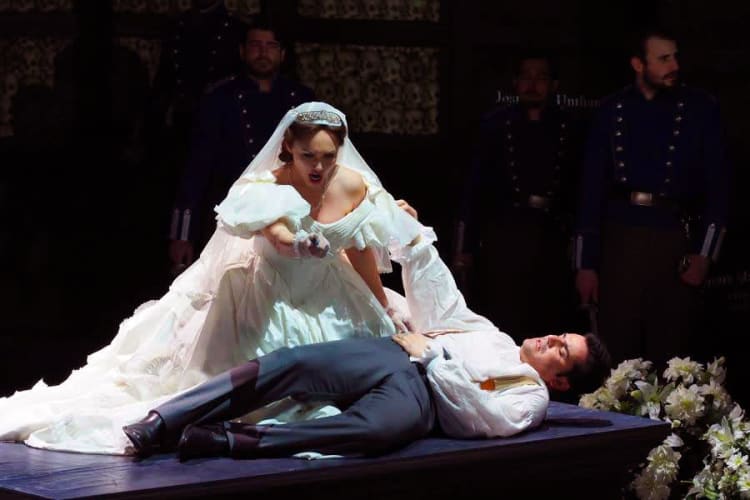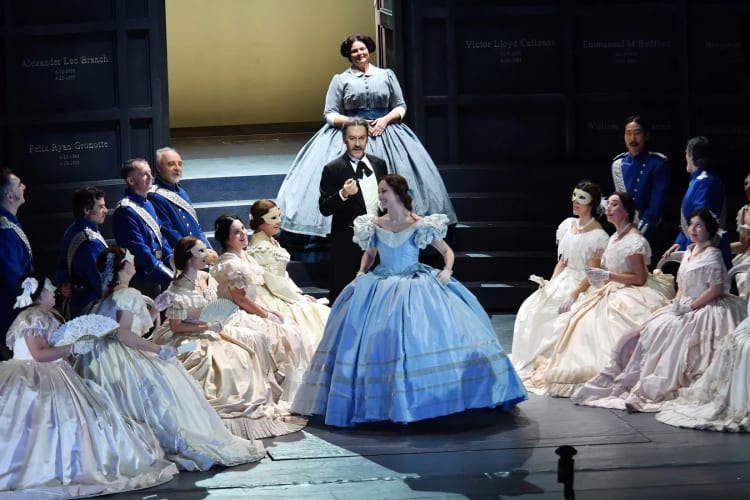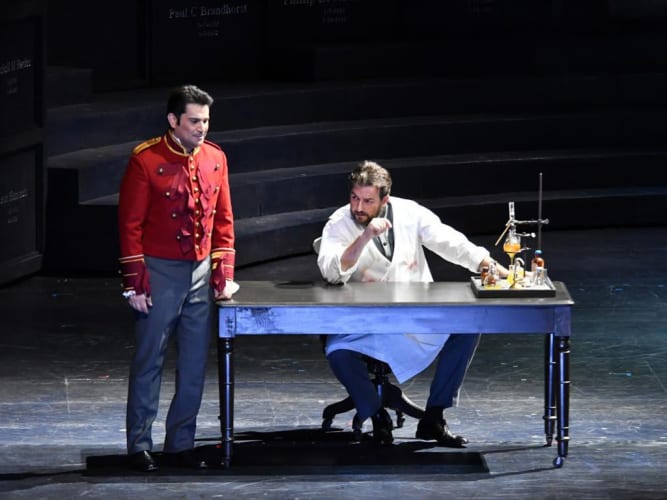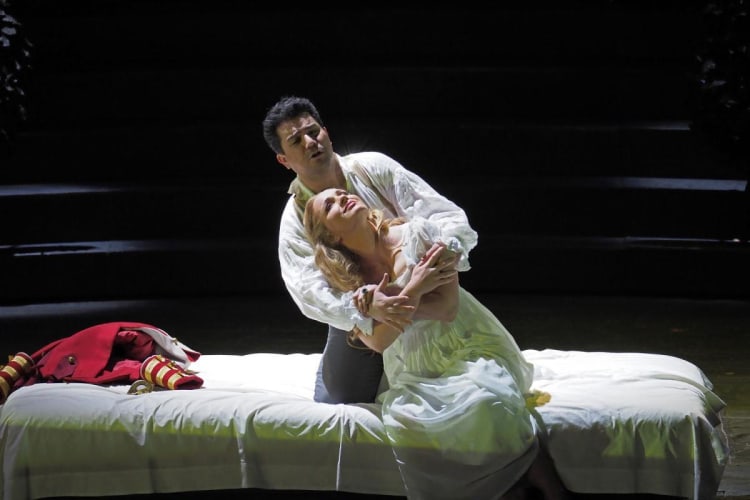Wonderful singing, a handsome couple, but a puzzling and dull production. Take your pick about what impresses you more about this Barcelona performance from 2018.
First the positives. Russian soprano Aida Garifullina gives a ravishing performance, as bubbly as the champagne she clutches in the famous waltz aria "Je veux vivre", and intensely dramatic throughout. There is a thrilling quality to her voice and as she sings "Dieu! Quell frisson", trembling at the thought of taking a dangerous, unknown elixir, I felt that frisson too.
Her Romeo, Albanian tenor Saimir Pirgu, shines in those passages that bring out the bright, unforced quality of his voice in the upper register, and brings a caressing, soft almost whispering tenderness to quieter moments as in "Ah! Leve-toi soleil".
The four duets for the lead singers are among highlights of the piece, and in a break from Shakespeare, Gounod understandably wakes Juliet in time for a final love song with Romeo.
That, however, takes place, in director Stephen Lawless’s production, in the presence of members of both the Capulet and Montagu families and of Friar Lawrence, who all stand idly by as Romeo breathes his last and Juliet stabs herself. Nor is the crowd choreography much better in the earlier scene when Juliet is assumed to have fatally collapsed—the lack of reaction in the unmoving chorus inevitably detracting from the drama.
The chief drawback of the production is that Lawless sets the piece, not in Verona, but in the United States during the American Civil War, within a columbarium—a grim, curving sepulchre with niches for funeral urns, that in the final act open to reveal stacks of skulls, like a horrible legacy of some tyrannical regime.
Women, including Juliet’s nurse, wear enormous crinolines; the menfolk dressed in uniforms either of blue or red, the latter colour presumably preferred over Confederate grey because of the dreary greyness of the background.
These are warring families writ large, but the downside of the concept is its effect on the personal drama. Gounod’s sweeping romantic melodies and the star-crossed lovers’ sensual embraces do not have quite the same emotional impact when played out in a morgue.
Nicola Ulivieri displays a richness of tone as Father Lawrence, and if there is an element of world-weariness about his demeanour, it comes from just having attended the death of a patient in a field hospital. Ruben Amoretti cuts a vigorous figure as Capulet, with lively support from David Alegret as Tybalt and Gabriel Bermudez as Mercutio.
The production has some merit: the omission of ballet scenes and a confident handling of the sword fight that results in the deaths of the latter two help maintain the momentum of the piece. Lawless’s concept is thoughtful, certainly, but a passion killer.



